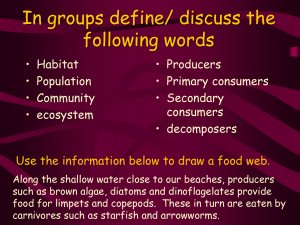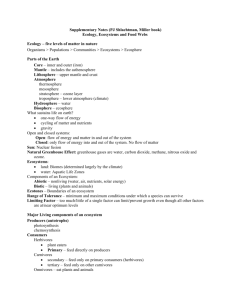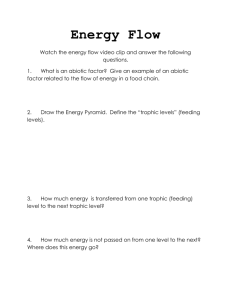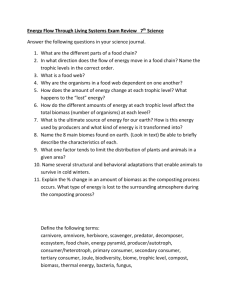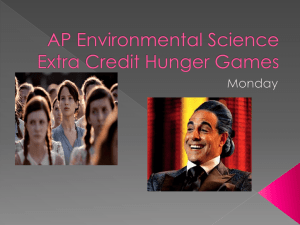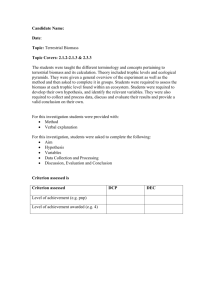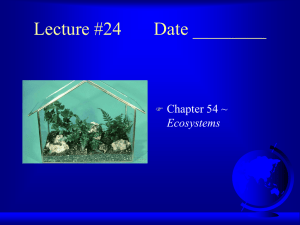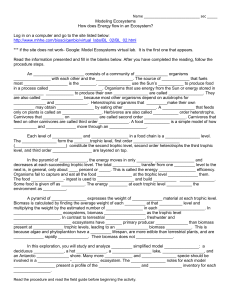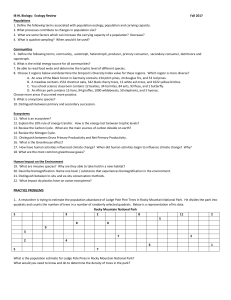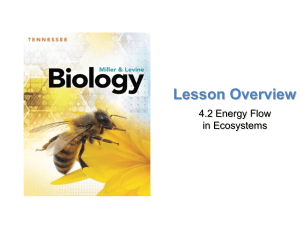Basic Ecology I • Energy • Types of Ecosystems • Productivity
advertisement
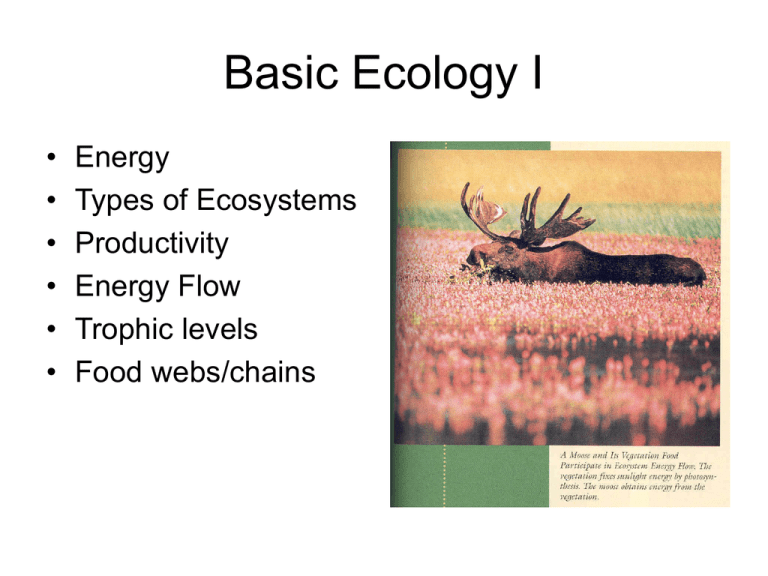
Basic Ecology I • • • • • • Energy Types of Ecosystems Productivity Energy Flow Trophic levels Food webs/chains Energy: the ability to do work • • • • • • Moving matter over a distance/ a heat transfer between two objects Kinetic energy: energy contained in moving objects Potential energy: stored energy Heat: energy transferred between objects High and Low quality energy: concentrated versus diffused Ie, wind compared to oil Thermodynamics • 1st law: energy is conserved • 2nd law: with energy transfer, less energy becomes available Potential and kinetic energy Energy and Ecosystems Chemosynthesis Ecosystems Productivity • Limits to Primary production • • • • Light Nutrients Water Temperature Energy Source for Ecosystem • Energy flows through ecosystem • Not recycled like matter • Continuous supply • Solar energy • Enters ecosystem through photosynthesis Equations for production • Biomass 1 = biomass 2 – NP (net production) • Three currencies of energy flow: biomass, energy content, carbon content Trophic levels • Autotrophs (Producers) • Heterotrophs (Consumers) • Detritivores (Decomposers) Trophic levels • Autotrophs (Producers) • Heterotrophs (Consumers) • Detritivores (Decomposers) Chemosynthetic Light is not the source of energy Energy & Biomass Energy and Biomass Food Chains/Webs Aquatic Food webs Limits to Food Chain Length • Energetic Hypothesis • Inefficiency of energy transfer • 10% rule • Dynamic stability hypothesis (length of chain) Applications Biomagnification Toxic materials: DDT, Hg, Pb Human trophic Level Dependent of where we Eat in the food chain. Should Humans eat lower on the Food Chain? Summary • Energy determines the limits of the food supply • Energy is fixed by autotrophs • Energy flow between levels depends on the efficiency of energy transfer
